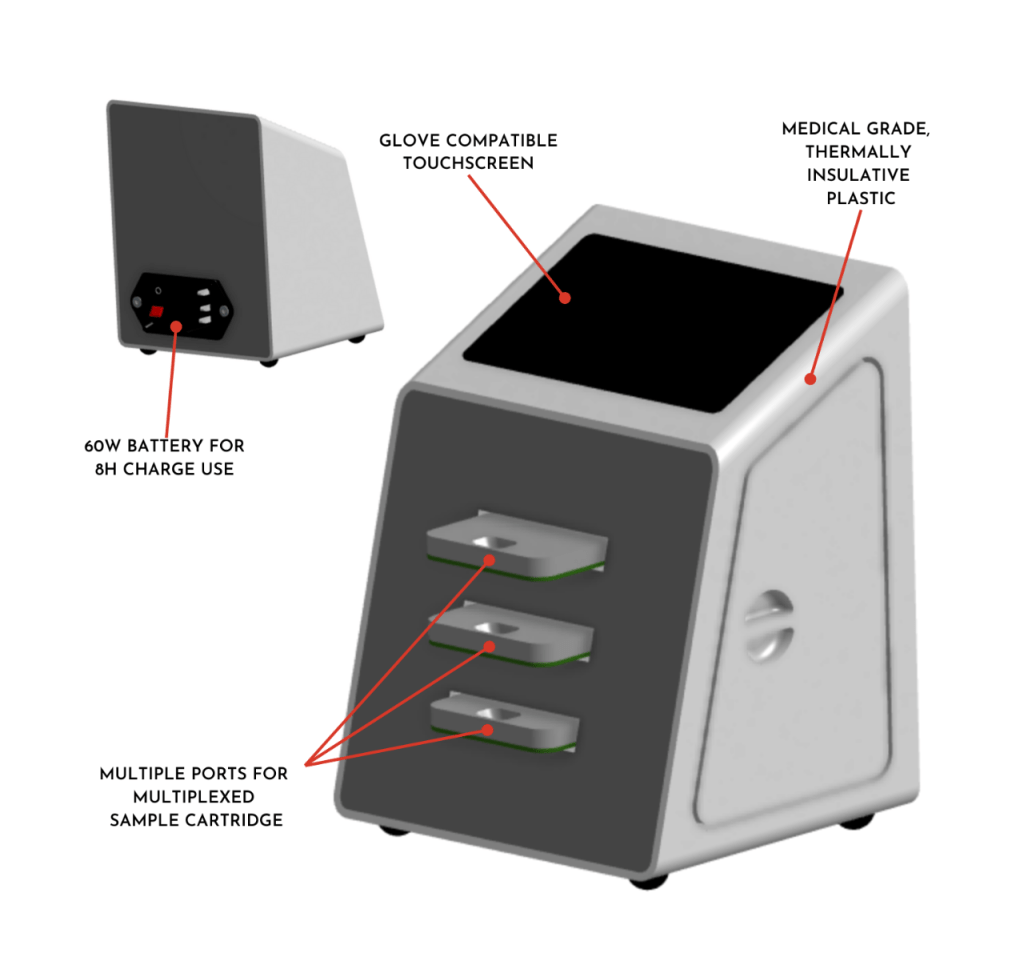comPLEX Dx: A Novel Device Corroborating Novel Biochemistry and Electronic Detectable into a Multiplexed Lateral Flow Pathogen Sensor for Efficient Detection of Respiratory Diseases
- Joshua Devier
- Krishna Sargur
- Sophia Zhai
- Aidan Aug
- Edward Lo
- Allyson Chiu
- Ashwatha Suresh
- Abigail Yoo
- Dr. Constanza Miranda (Faculty mentor)
- Dr. Benjamin Larman (Clinical mentor)
- Dr. Netz Arroyo-Curras (Committee member)
- Dr. Tania Caballero (Committee member)
- Dr. Joel Credle (Committee member)
- Alex Luo (Committee member)
- Sreenivas Eadara (Committee member)
- Meagan Smith (Teaching Assistant)
Abstract:
The inability to diagnose respiratory pathogens with overlapping symptomologies quickly and efficiently accounts for 18% of infant mortality annually. In this context, current patient diagnosis journeys could encounter numerous delays, allowing for further symptom development, barriers to testing/results, and delayed treatment (such as antibiotic/antiviral intervention). After interviewing 25+ potential patients, caregivers, physicians, and public health officials, we identified that physicians could profit from a method of detecting pathogens that could lead to an expedited diagnosis and treatment for time-sensitive respiratory diseases with overlapping symptoms.
comPLEX Dx presents a unique multiplexed, lateral flow pathogen sensor comprising novel biochemistry and electronic detection hardware. comPLEX Dx was developed to be used in point-of-care, and allows for the detection of 16+ pathogens in pediatric patients, simultaneously. The technology looks to provide high sensitivity and specificity in differentiating various respiratory bacterial, viral, and fungal infections. Our electronic hardware enables the detection of multiple pathogen signals at PCR-level accuracy and lateral-flow (sub-30 minute) speeds. comPLEX Dx holds promise in differentiating respiratory pathogens to expedite diagnosis and treatment in family medicine clinics across the US. Within the $714M pathogen detection market, comPLEX Dx could be the new paradigm to define the best course of treatment: getting the right diagnosis right now.

